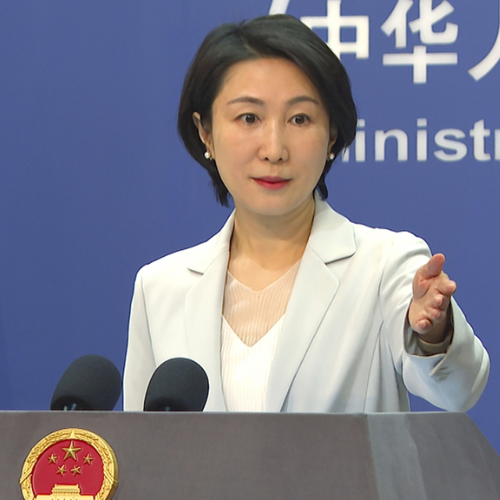In response to accusations from the United States Treasury Department claiming that Chinese state-sponsored hackers infiltrated its systems, China has firmly denied the allegations. Chinese Foreign Ministry spokesperson Mao Ning, during a routine press briefing, stated that such accusations are unfounded and lack concrete evidence. Mao reiterated China’s position against hacking in all forms, emphasizing that Beijing opposes the spread of false information that targets China for political purposes.
Mao’s remarks followed reports that Chinese hackers had breached the US Treasury’s computer systems and accessed sensitive documents. The US Treasury described the incident as a “major” security breach in a letter to lawmakers, which was reported by Reuters. Despite the serious tone of the allegations, China’s spokesperson dismissed them as baseless, asserting that they are part of a broader strategy to discredit China on the global stage.
The US Treasury’s Claims
According to the US Treasury Department, Chinese hackers allegedly bypassed the department’s computer security protections earlier this month. Reports suggest that sensitive documents were stolen during the breach. While specific details of the attack remain unclear, Treasury officials categorized the event as a significant incident and shared their findings with lawmakers.
China-linked Hack Targets US Treasury in Major Cybersecurity Incident
This claim comes amid heightened tensions between the US and China over cybersecurity concerns. In recent months, US officials have increasingly highlighted hacking threats they attribute to China, claiming that state-sponsored actors are targeting American institutions. However, critics argue that these accusations often lack evidence and may be motivated by political agendas rather than verified facts.
Experts Question the Motives Behind the Accusations
Some analysts have suggested that the US government’s repeated emphasis on alleged Chinese hacking activities may serve political and institutional purposes. These experts believe that by portraying China as a cybersecurity threat, certain US agencies can justify increased budgets and resources to combat supposed vulnerabilities.
Additionally, hyping up such incidents may allow officials to highlight their vigilance and competence, presenting themselves as capable guardians of national security. However, critics warn that this approach risks politicizing cybersecurity issues and undermining the credibility of such claims.
China, on the other hand, has consistently voiced its opposition to all forms of hacking and has called for greater international cooperation to address cybersecurity challenges. By refuting the latest allegations, China has reiterated its stance that it does not support or engage in cyberattacks and is against the dissemination of disinformation for political purposes.
Severe Hacking Threat: 9th Telecom Firm Compromised in Espionage Campaign
A Broader Pattern of Disinformation?
The accusations of hacking come at a time when US-China relations are already strained. Cybersecurity has become a contentious topic in the broader geopolitical competition between the two nations. Chinese officials have often criticized the US for what they see as a deliberate strategy to smear China’s reputation internationally. They argue that framing China as a primary culprit in hacking incidents serves to shift attention away from other global cybersecurity concerns.
China’s response to the US Treasury’s claim is consistent with its broader approach to similar accusations in the past. Beijing maintains that the US has yet to provide credible evidence to support its hacking allegations. Chinese officials have also pointed out that the US has its own record of conducting large-scale surveillance and cyber operations, as revealed by whistleblowers in recent years.
The current incident highlights the ongoing tension and mistrust between the two countries, particularly in the digital sphere. As cybersecurity issues continue to dominate discussions, both nations remain locked in a war of words, with no clear resolution in sight. For now, China’s denial of the hacking allegations underscores its resistance to being portrayed as a cyber aggressor and its opposition to disinformation campaigns aimed at political gain.


